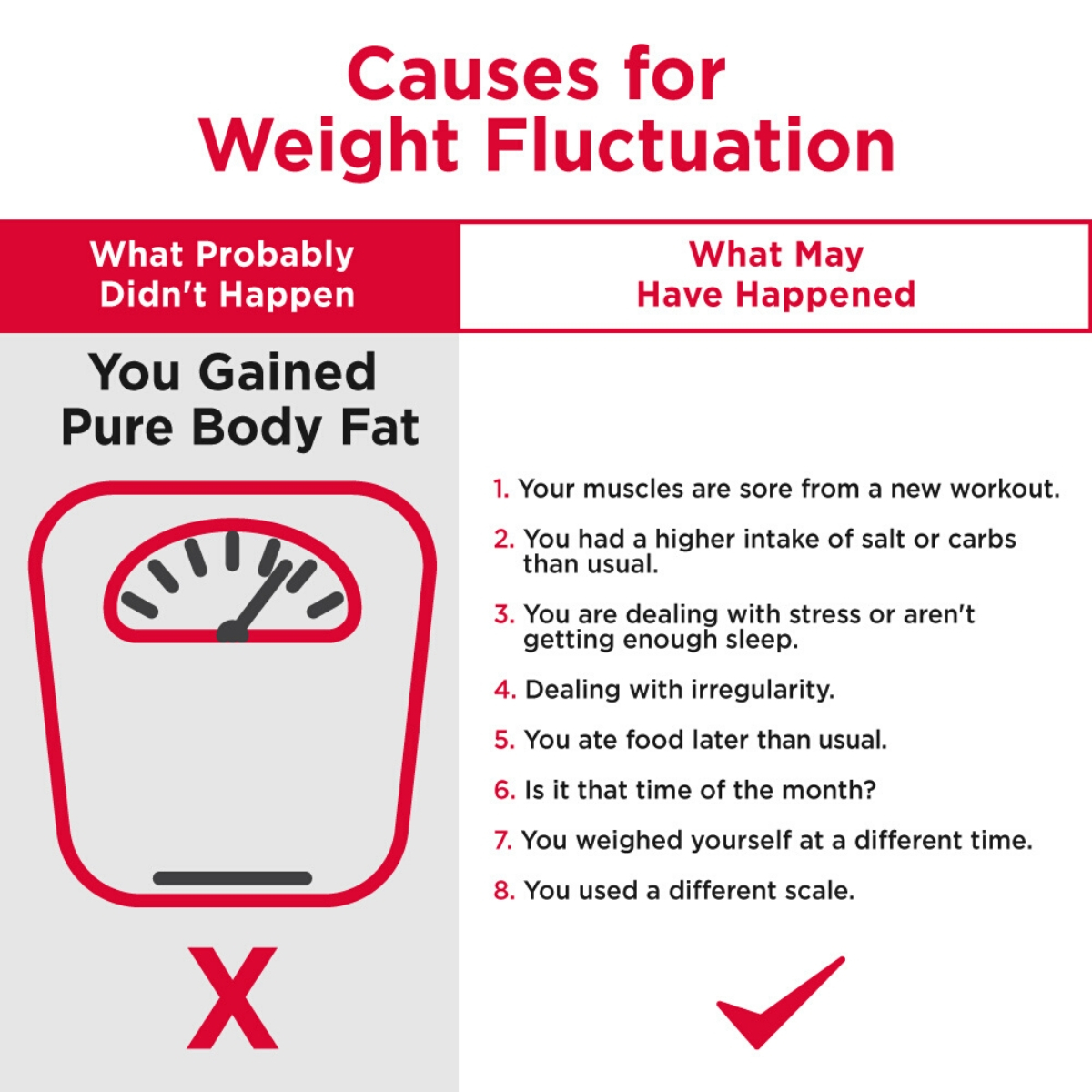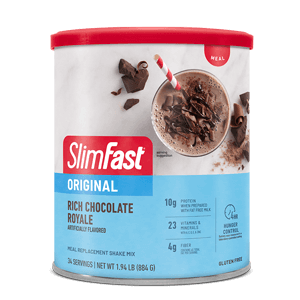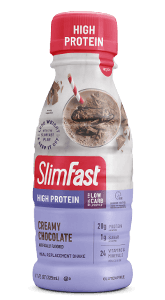SlimFast Plan Consultant and Registered Dietitian Maryann Walsh, shares the following advice for those worried about weight fluctuations.
Wondering why the number on the scale is up a bit even though you have been diligently sticking to your nutrition and exercise plan? Don’t stress! Weight fluctuations are a normal part of a healthy lifestyle and do not necessarily mean you’ve gained weight in the form of fat. Here are some factors that can affect scale weight:

1️. Muscle Soreness: Before you begin to doubt your new exercise routine, consider this: A new strength training program causes stress on your muscles. In response, your body sends water to the muscles to help them repair, leading to temporary water retention. This is part of a process called delayed onset muscle soreness (DOMS) and it may occur in the first 24-36 hours after exercising.
2️. Higher intake of salt or carbs than usual: Too much sodium or a higher intake of carbohydrates can cause the body to temporarily hold onto extra water. Carbohydrates are stored as energy in the form of glycogen in the body and for every gram of glycogen, the body can store around 2-4g of water1. It’s important to find a sodium and carbohydrate intake level that makes sense for your own unique needs. While one’s calorie needs and overall daily carbohydrate goals vary, the general recommendation for sodium intake is to stay under 2300 mg per day for generally healthy individuals, and under 1500 mg per day for those at risk for heart disease or other health conditions2.
3️. Stress and/ or sleep deprivation: Long term stress and sleep deprivation can increase the stress hormone cortisol, which influences fluid retention and water weight. Additionally, dehydration signals anti-diuretic hormone (ADH) to retain water weight3. Establishing a regular sleeping pattern of 7-9 hours per night, hydrating regularly, and managing stress may help eliminate water weight gain. Lack of sleep also can lead to an increase in the hunger hormone ghrelin which can lead to increased hunger and calorie intake.
4️. Irregularity: When your body is not regularly eliminating, that extra waste in your body can reflect on the scale. Make sure you are drinking adequate water and getting enough fiber each day. The general recommendation per day is 25g for women and 38g for men.4 If you have any concerns about irregularity it is always best to consult with your doctor.
5️. Eating later than usual: Fat gain will not occur merely by eating later if you are still eating within your daily calorie needs. However, the later you eat, the less time your body has to digest and breakdown foods, so the number on the scale could be higher if you were to weigh yourself first thing in the morning.
6️. Menstrual Cycle: In the days leading up to a woman’s menstrual cycle, estrogen and progesterone decrease. This fluctuation causes water retention, which is a PMS symptom that affects many women of menstruating age5.
To obtain the most accurate weight, weigh yourself first thing in the morning with minimal clothing, after using the restroom & before any food or drink is consumed. Also, make sure to use the same scale every time on the same hard surface. When trying to get an accurate reading, stand in the center of the scale, and be careful not to shift your weight from foot to foot. Lastly, if you find you are becoming overly preoccupied with the number on the scale consider weighing less frequently or putting the scale away or out of sight and only taking it out once a week! Trust in the process and trust the fact that if you are staying consistent with your plan you will continue on the path to achieving your weight loss or weight maintenance goals!
Maryann Walsh, MFN, RD, LDN
Studies/ references in links:
- https://www.ncbi.nlm.nih.gov/m/pubmed/25911631/
- https://www.heart.org/en/healthy-living/healthy-eating/eat-smart/sodium/how-much-sodium-should-i-eat-per-day
- https://www.ncbi.nlm.nih.gov/pmc/articles/PMC4688585/
- https://www.ncbi.nlm.nih.gov/pmc/articles/PMC6124841/
- https://www.ncbi.nlm.nih.gov/pmc/articles/PMC2849969/
ABOUT MARYANN
A consultant of the SlimFast Plan, Maryann is a Registered Dietitian with Bachelor of Science degrees in Biological Sciences and Dietetics and a Master of Food and Nutrition. She has extensive experience working with clients of all ages and from all walks of life, helping them to achieve their wellness and weight-loss goals. Learn more about Maryann.




